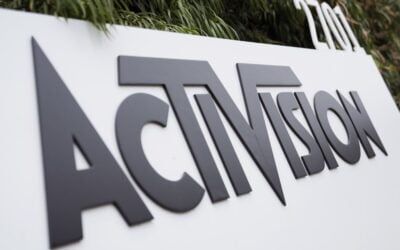Easement Real Estate Dispute Attorneys
A mortgage is a lien that provides a lender with the right to seize property if the borrower fails to pay a debt. While the term “mortgage” is often used to refer to the loan used to purchase the property, it is actually an interest in real property that is held by the lender.
Mortgage laws vary by state, but nearly every state has adopted systems based on one of two legal theories. In lien theory states, the borrower takes legal title to the property while the lender holds a lien on it for the life of the loan. In states that have adopted the title theory of mortgages, the lender holds title to the property for the life of the loan while the borrower retains equitable title, which allows the borrower to occupy and use the property.
Whichever theory has been adopted by the state where the mortgaged property is located, when the borrower falls behind on loan payments the lender will take steps to seize the property through foreclosure. The foreclosure proceedings will be governed by state law and the terms of the mortgage. If the borrowers believe the lender is foreclosing in error, they will have the opportunity to contest it.
In states with judicial foreclosure, the borrowers will receive a summons and complaint notifying them of the lender’s foreclosure action. If the borrowers seek to contest the foreclosure, they will need to file an answer by the court’s deadline. Should the lender find the defendant’s objection to the foreclosure has merit, it may choose to negotiate an out-of-court settlement prior to trial. However, that is uncommon and in most cases the lender will file for summary judgment, which asks the court to dispose of the case in its favor without going to trial.
A motion for summary judgment argues that there is no genuine dispute of material fact and that the other party cannot prevail. If the borrower can provide evidence of a genuine dispute, the judge will determine whether the case will proceed to trial. If the judge agrees with the lender that there is no genuine issue of material fact, the court will grant summary judgment its favor and allow the lender to move forward with the foreclosure sale. Otherwise, the judge will allow the case to continue to trial.
A number of states allow for non-judicial foreclosure, which puts the burden on the homeowner to bring a court action challenging the foreclosure. Since the borrowers file the legal action in non-judicial foreclosures, they have the burden of proof for showing the litigation should move forward. That is because the mortgage grants the lender the right to foreclose on the property for non-payment and the borrowers are asking the court to deny the lender its contractual rights. Should the borrower show it has valid grounds for challenging the foreclosure, the court will issue an injunction stopping it until a judge can decide the issue.
Mortgage lien disputes are complex legal matters and both sides should be represented by well-qualified, knowledgeable real estate attorneys. The attorneys at Thomas H. Curran Associates have extensive experience representing both lenders and borrowers in mortgage litigation and can advise both on their best course of action with regard to their case. Since our lawyers have a deep understanding of both sides of the issue they are also skilled in negotiating solutions that will spare the parties the cost of litigation.
Litigation Practice Results
Recent successful cases handled by the attorneys at Thomas H. Curran Associates. Find more here »
Thomas H. Curran Associates Secures Appellate Victory in Insurance Coverage Dispute
In a significant legal victory, Thomas H. Curran Associates (THCA), representing the Plaintiff-Appellant, successfully overturned a trial...
Supreme Court Denies Final Appeal, Finalizing Judgement Obtained by THCA
On June 24, 2024, the Supreme Court of the United States declined the petition to review filed by Sean Dunne and his ex-wife Gayle...
Thomas H. Curran Associates Secures Appellate Victory as Massachusetts Supreme Judicial Court Denies Appellant’s Attempt to Shortcut Ordinary Appellate Review
Thomas H. Curran Associates recently obtained an appellate victory in the Massachusetts Supreme Judicial Court on May 26, 2023, in the...
Thomas H. Curran Associates win is Affirmed in Florida, U.S. District Court – Client Wins Attorneys Fees
Law: Federal Rule of Civil Procedure 37(a)(5) Case: Premier Capital, LLC v. Larry Bryan (AP) Underlying Bankruptcy Case: In re Larry Bryan...
The Second Circuit Affirms Bankruptcy Fraud Judgment Obtained by Thomas H. Curran Associates, Recognizing the Continuous Concealment Doctrine
Law: Continuous concealment doctrine, 11 USC § 727(a)(2)(A), In re Olivier, 819 F.2d 550 (5th Cir. 1987); In re Boyer, 328 F. App’x 711,...
Thomas H. Curran Associates prevails on barring discharge due to fraud by debtor
Thomas H. Curran Associates recently secured a victory on behalf of an institutional asset manager, where the Bankruptcy Court for the...
Thomas H. Curran Associates Secures Appellate Victory in Insurance Coverage Dispute
In a significant legal victory, Thomas H. Curran Associates (THCA), representing the Plaintiff-Appellant, successfully overturned a trial...
Supreme Court Denies Final Appeal, Finalizing Judgement Obtained by THCA
On June 24, 2024, the Supreme Court of the United States declined the petition to review filed by Sean Dunne and his ex-wife Gayle...
Thomas H. Curran Associates Secures Appellate Victory as Massachusetts Supreme Judicial Court Denies Appellant’s Attempt to Shortcut Ordinary Appellate Review
Thomas H. Curran Associates recently obtained an appellate victory in the Massachusetts Supreme Judicial Court on May 26, 2023, in the...
Thomas H. Curran Associates win is Affirmed in Florida, U.S. District Court – Client Wins Attorneys Fees
Law: Federal Rule of Civil Procedure 37(a)(5) Case: Premier Capital, LLC v. Larry Bryan (AP) Underlying Bankruptcy Case: In re Larry Bryan...
Thomas H. Curran Associates Secures Appellate Victory in Insurance Coverage Dispute
In a significant legal victory, Thomas H. Curran Associates (THCA), representing the Plaintiff-Appellant, successfully overturned a trial...
Supreme Court Denies Final Appeal, Finalizing Judgement Obtained by THCA
On June 24, 2024, the Supreme Court of the United States declined the petition to review filed by Sean Dunne and his ex-wife Gayle...
Thomas H. Curran Associates Secures Appellate Victory as Massachusetts Supreme Judicial Court Denies Appellant’s Attempt to Shortcut Ordinary Appellate Review
Thomas H. Curran Associates recently obtained an appellate victory in the Massachusetts Supreme Judicial Court on May 26, 2023, in the...
Litigation Areas of Expertise
Litigation News
Disciplinary judge approves lawyer’s suspension for using ChatGPT to generate fake cases | Colorado Politics
Recently, a Colorado lawyer received disciplinary action for employing artificial intelligence to generate fake case citations in a legal...
US appeals court proposes AI restrictions in all court filings | Jurist
In November, the US Court of Appeals for the Fifth Circuit proposed a new rule requiring lawyers to certify that they either did not use...
Mallinckrodt’s Second Bankruptcy Would cut $1 Billion from Opioid Settlement | STL Today
The Irish based company, Mallinckrodt’s, second bankruptcy may place creditors in ownership of the company and cut $1 billion from the...
The FTC’s case against Microsoft’s Activision acquisition is not going well | Vox
Microsoft and Activision Blizzard are overcoming hurdles to their $69 billion dollar merger. If the merger goes through, Microsoft will...
California Rejects Viking River, Allows PAGA Claims to Proceed | JDSUPRA
Case: Adolph v. Uber Tech., Inc. The California Supreme Court recently rejected the U.S. Supreme Court’s interpretation of the Private...
Supreme Court allows construction to resume on the Mountain Valley Pipeline | AP News
The Court’s ruling affirmed that, in some instances, Congress may have power over federal courts. The pipeline has faced significant...
Disciplinary judge approves lawyer’s suspension for using ChatGPT to generate fake cases | Colorado Politics
Recently, a Colorado lawyer received disciplinary action for employing artificial intelligence to generate fake case citations in a legal...
US appeals court proposes AI restrictions in all court filings | Jurist
In November, the US Court of Appeals for the Fifth Circuit proposed a new rule requiring lawyers to certify that they either did not use...
Mallinckrodt’s Second Bankruptcy Would cut $1 Billion from Opioid Settlement | STL Today
The Irish based company, Mallinckrodt’s, second bankruptcy may place creditors in ownership of the company and cut $1 billion from the...
The FTC’s case against Microsoft’s Activision acquisition is not going well | Vox
Microsoft and Activision Blizzard are overcoming hurdles to their $69 billion dollar merger. If the merger goes through, Microsoft will...
Disciplinary judge approves lawyer’s suspension for using ChatGPT to generate fake cases | Colorado Politics
Recently, a Colorado lawyer received disciplinary action for employing artificial intelligence to generate fake case citations in a legal...
US appeals court proposes AI restrictions in all court filings | Jurist
In November, the US Court of Appeals for the Fifth Circuit proposed a new rule requiring lawyers to certify that they either did not use...
Mallinckrodt’s Second Bankruptcy Would cut $1 Billion from Opioid Settlement | STL Today
The Irish based company, Mallinckrodt’s, second bankruptcy may place creditors in ownership of the company and cut $1 billion from the...
Contact Us
Are You In Need of Legal Counsel for Commercial Litigation, Business Transaction Matters, or a Bankruptcy Matter?
Contact our team today.
Call us at (617) 207-8670 or use the quick contact form below.
Austin Office
7710 N. FM 620
Building 13-D
Austin, TX 78726
Boston Office
15 Broad Street
Suite 610
Boston, MA 02109
New York Office
17 State Street
40th Floor
New York, NY 10004
London Office
The Leadenhall Building
Level 30
122 Leadenhall Street
London EC3V 4AB
Tags: mortgage litigation attorney mortgage dispute attorney mortgage litigation lawyer




